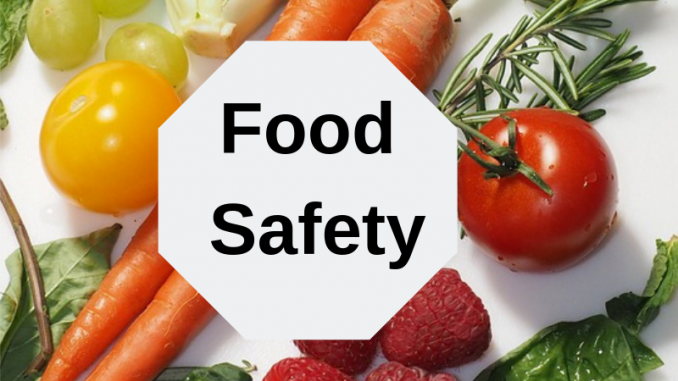By Tony Obiechina, Abuja
The Nigerian Economic Summit Group (NESG), the Federal Ministry of Health in partnership with, the Food & Agriculture Export Alliance (FAEA), the United States Department of Agriculture (USDA), the University of Missouri (UoM), and AGRA will hold a two-day Food and Feed Safety Transformation Dialogue.
This dialogue, slated for Tuesday, 13th and Wednesday 14th December, 2022 will be the first in a series of dialogues in the development of a roadmap of capacity building activities in support of Nigeria’s food and feed safety modernization efforts in Abuja, Nigeria.
The food industry in Nigeria is highly regulated. The country operates a multiple-agency food safety control system which is mostly sectoral. Food safety legislation is also fragmented between the three tiers of government: federal, state, and local governments.
The major challenges facing the enhancement of food safety in the country include a lack of awareness of the socio-economic importance of food safety, paucity of data and information on the incidence of food-borne disease outbreaks.
Others include lack of understanding of food safety and quality standards as outlined in international agreements, inability to enforce compliance with international standards and global best practices, inadequate infrastructure and resources to support scientific risk analysis and upgrading of food safety regulatory systems, inefficient food supply chain and poor traceability system.
A statement by the NESG on Monday, said, “there is therefore an urgent need to strengthen the existing food safety system at each enterprise level at the Federal, State, and LGAs platforms in order to develop a safe and reliable food supply chain.
“The need to re-align Nigeria’s food safety system to effectively address food safety concerns have now, more than ever, become evident. This is expedient because the passage, presidential assent, and full implementation of the Food Safety Act will provide an opportunity for the transformation of the Nigerian Food Safety System; thus making Nigeria able to meet its food safety requirements as well as generating further revenue from exports of safe and nutritious food products within the West African Region and globally.
According to the statement, the proposed meeting will bring together relevant stakeholders from both the public and private sectors in Nigeria as well as United States food safety regulatory experts to discuss experiences and approaches in regulatory reform and implementation in the food and feed safety sub-sector; as well as provide primary insights and input for a multi-year roadmap for technical cooperation.
Topics slated for discussion include food trade, risk management, traceability, and food inspection.
The NESG is a leading think-tank that has played a critical role in shaping and championing key reforms in Nigeria toward achieving an open, globally competitive, and sustainable economy. The Food and Agriculture Export Alliance (FAEA) is a United States-based private non-profit organization dedicated to enhancing cooperation among commodity groups and private organizations in developing markets through reduced Sanitary and Phytosanitary (SPS) and Technical Barriers to Trade (TBT) constraints.
The United States Department of Agriculture’s Foreign Agricultural Service is USDA’s foreign affairs agency with the primary responsibility for overseas programs in agricultural market development, trade negotiation, and capacity building. The University of Missouri’s College of Agriculture, Food, and Natural Resources is a leading American university in research and extension that impacts human health, food production, and natural resources. AGRA is a leading public-private platform for African agricultural and economic development.


